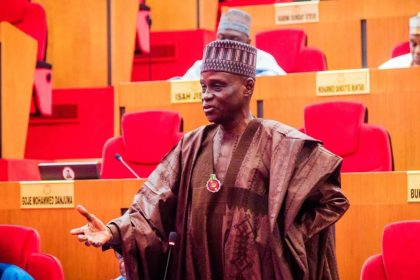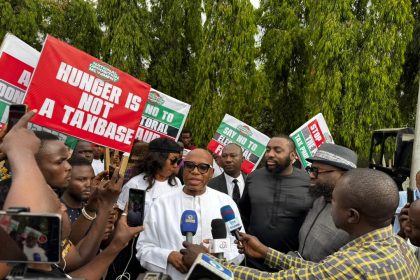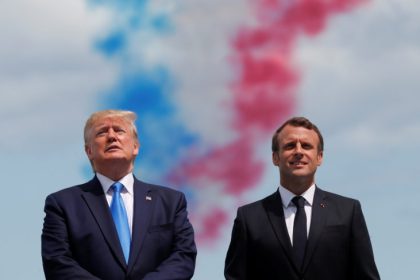Former President Olusegun Obasanjo has said a major challenge with the anti-corruption fight of the Federal Government is the lack of successful prosecution of high-profile corruption cases involving ‘Politically-Exposed Persons’.
Obasanjo added that despite the efforts of successive governments, corruption still posed a challenge to the progress and development of Nigeria.
The former President said this while delivering an inaugural lecture organised by the National Open University of Nigeria, in Abuja, on Tuesday.
The lecture was titled, “Leadership, Governance, and the Challenges of Development in Nigeria: The Way forward.”
Obasanjo, who admitted that Nigeria’s poverty and seeming lack of direction was caused by leadership, said the institutions in the country needed to be strengthened to ensure transparency and accountability.
He said, “Nigeria’s poverty, insecurity, lack of unity and cohesion, youth restiveness and seeming directionless are conscious and unconscious choices made by Nigerian leaders. The impact of corruption on the Nigerian society and economy has been devastating. It continues to affect the government’s ability to provide basic services and has negatively impacted on the wellbeing of the population.
“The lack of successful prosecution of high-profile corruption cases involving some Politically-Exposed Persons is giving a serious cause for concern both for Nigerians and the international community. We must take away the proceeds of illicit enrichment and remove negative role models in our society.”
Obasanjo noted that the government needed serious investments in the areas of human security and development of infrastructure.
“We must invest in areas that can improve human security including food, education, and health. Our budget must reflect a genuine commitment for the development of infrastructure such as roads, rails, power, ports and housing. When we spend 70 to 80 per cent of our revenue on recurrent expenditure, we have very little left for capital and infrastructural development. We should move to 50 per cent of our revenue being spent on capital development,” the former president added.




